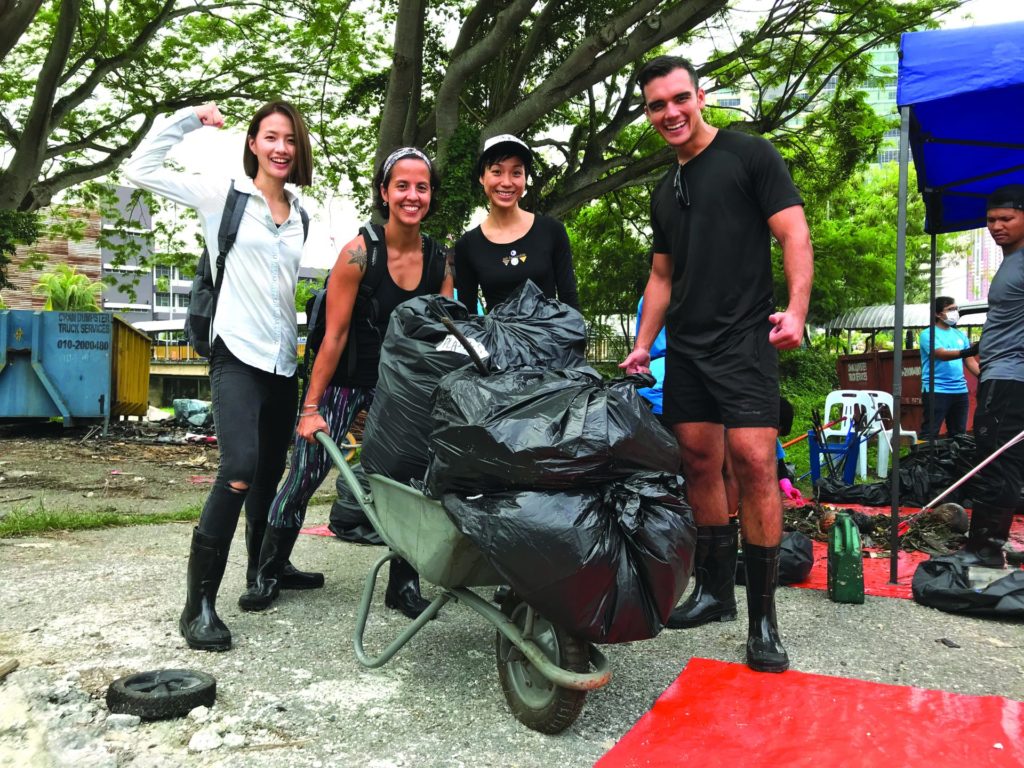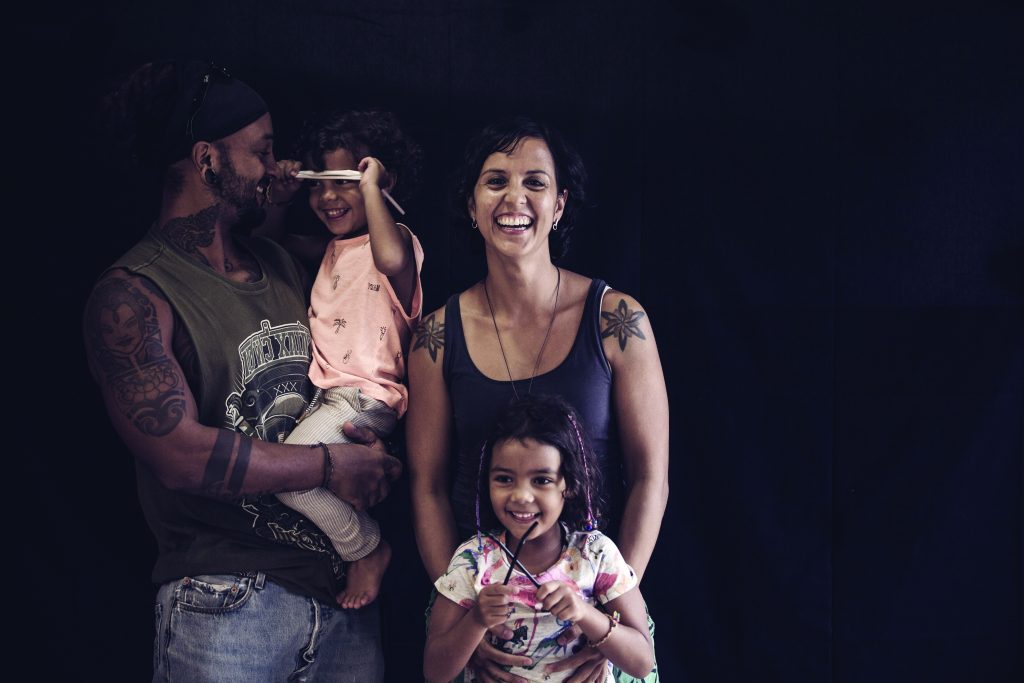These Green Warriors Are Fighting For The Environment in Malaysia, One Step At A Time
Eco-conscious collectives prove that small can be mighty by leading the charge against single-use plastic in Malaysia.
Words Sharon Crowther

Not convinced? Think about it: your morning smoothie, your kid’s juice box, your afternoon iced coffee, your weekend cocktails. Now consider that every straw you’ve ever used, your entire life, is possibly still out there somewhere because plastic takes around 200 years to decompose.
But, as of this month, single-use straws are officially off the menu in the federal territories of Kuala Lumpur, Putrajaya and Labuan. Many hope it’s only a matter of time before other single-use plastics are also struck off, not least the passionate individuals advocating for action as part of campaign groups and lifestyle collectives.

“The straw is a symbol of change,” says Marissa Parry of The Green Guerrilla, a group of advocates, formed in 2018 to champion environmental awareness, sustainability and conscious living. “We won’t save the world by not using straws, but it is changing our collective mindset. It comes down to the acknowledgement that every single thing we do as humans has an impact on the environment, and that has an impact on us in return.”
Those behind The Green Guerrilla are from a diverse range of backgrounds, from fitness trainers and nutritionists like Parry to food bloggers, entrepreneurs and vegan athletes. They’re united not only by their commitment to the environment but also their impressive social media clout, which they’re using to take eco-friendly living to the masses.
“Our planet needs everyone, not just those already inside the eco-bubble, to do better,” explains Parry. “The power of change lies within all of our hands. Saying ‘no’ to single-use plastic, to bottles of water, to plastic bags, to takeaway containers, to buying more clothes we don’t need, all of that can and does make a big difference.”

Mareena Yahya Kerschot, co-founder of campaign group Tak Nak Straw, founded in 2015 and meaning ‘No Straws, Please’, agrees. She says the collective ‘no’ ringing in the ears of Malaysian businesses is what has and will continue to drive legislative change.
“Our campaign started out by asking people to make a social media pledge to refuse plastic straws because then businesses will bend to consumer pressure and stop using straws,” she says. “When businesses stop using straws, that creates pressure on the government to follow up with legislation.”
“It might seem like baby steps but when you add them up, those baby steps will take us far,” she continues. “Step one is straws, step two is plastic water bottles, step three is toiletry bottles like shampoo. And that’s how it starts, one step at a time.”
Tak Nak Straw’s next step is to reach out to rural Malaysia to educate people on the impact throw-away plastic has on the environment and the greener alternatives available. Straws, she says, are just the tip of the trash pile.

“The challenge in our countryside is that businesses there, such as food vendors, are often 200-ringgit-a-day enterprises and they need incentives in order to be able to make changes that will cost them money. We need to find ways to make alternatives, such as biodegradable cutlery, affordable to even the smallest businesses,” she says.
With necessity being the mother of invention, Mareena believes legislative changes ahead could present an opportunity for entrepreneurial Malaysians. “We believe Malaysia can be the first country in Southeast Asia to completely ban single-use plastics and I believe there’s a chance for Malaysians to take a lead in developing alternatives to plastics,” she says. “We’re already seeing success with Orang Asli businesses making bamboo straws, for example.”
Yasmin Rasyid, founder of EcoKnights, an environmental organisation that has been tackling issues including waste management and river eco-systems since 2005, says interest in the environment, generated by social media influencers, is also helping to throw a spotlight on other environmental issues such as waste management and sustainable consumption.
“I’ve been in this sector for 20 years and there’s been a tremendous leap in public awareness, action and engagement in our programmes over that time,” she says. “Social media influencers are playing a huge role in that.”
“The government recently announced its environmental roadmap for Malaysia and a plan to abolish single-use plastic by 2030. Part of our remit is to ensure the public are engaged with this plan, they see the benefit, and they throw their support behind it,” she adds.
In an effort to bring garbage more fully into public sight, EcoKnights members run regular river clean-ups in and around Kuala Lumpur where they invite people to roll up their sleeves and segregate waste collected in log booms. Yasmin says the “shock value” of this exercise is huge.
“We’ve had up to 200 people turn out for these efforts and we run them for businesses as well groups of social media influencers and the media. It’s a powerful thing when people are faced with their own trash, things like straws that they assumed just disappeared when they were done with them,” she says. “We live in such a convenience culture these days, it’s important that we face up to the impact that has on our environment. Then we can make informed decisions on how we manage our lives and the choices we make every day with regards to takeaway cups and food containers, but also to household waste and consumerism.”
Yasmin hopes the momentum behind environmental issues in Malaysia continues to grow. “We’re seeing a trend towards environmental issues in Malaysia, especially among millennials, which is a great thing, but to be sustainable, interest needs to outlast the trend. I hope we’re going to see a long-term generational shift,” she says.
“Ultimately, my utopia would be the day that EcoKnights is obsolete because, in a perfect world, nobody would need us,” adds Yasmin.
For Parry and her comrades, the next step is to translate this consumer trend into a business one, where bigger trash piles mean bigger wins for everyone. “As more individuals become conscious of their own footprint on the planet, we must hold businesses accountable and make them realise that being more sustainable improves their sales prospects to this growing market,” she says.
“Events also generate huge amounts of waste because responsible waste disposal is often considered an unnecessary logistical hassle. It can be very defeating as a try-hard citizen when you witness businesses undoing the equivalent of months of your hard work in a day. That’s why we’re looking to consult with anyone who wants to make a change to their business, tapping into our collective contacts, knowledge and experience to provide them with the tools needed to make a change for environmental good.”
The post These Green Warriors Are Fighting For The Environment in Malaysia, One Step At A Time appeared first on Going Places by Malaysia Airlines.
